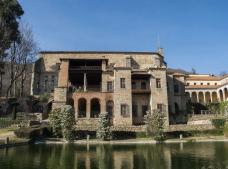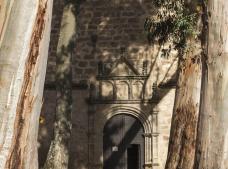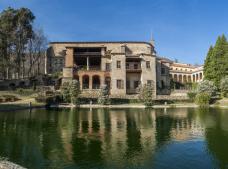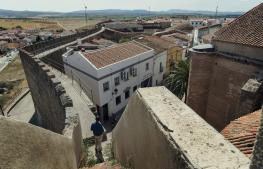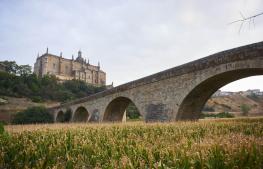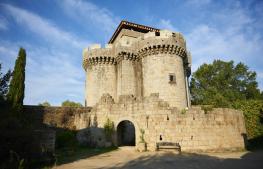Monastery of Yuste European Heritage
Royal residence
On one side of the Sierra de Tormantos mountains, two kilometres from the town of Cuacos, stands the Monastery of Saint Jerome of Yuste, an imposing structure where the Holy Roman Emperor Charles V (King Charles I of Spain) spent the last two years of his life.
Its origins go back to the 13th century, when the owner of the lands the monastery occupies transferred them to a religious community, the ‘Ermitaños de la Pobre Vida’, so they could build a convent.
The monastery and life there experienced significant changes in the 16th century on the orders of the Emperor Charles V, who chose this place as his residence for his final days after giving up the Spanish throne in favour of his son Philip II.
As a result, it was necessary to undertake significant work to accommodate the emperor and his large retinue, carrying out construction in the southern area, adjacent to the church, to build a palatial two-storey home, with four rooms on each storey, around an internal courtyard.
The ground floor and the left wing are the location of Charles V’s antechamber and bedroom, while the rooms on the right side have views out to the orchard, which includes a beautiful pond, an oil mill and a flour mill.
Charles V died on 21 September 1558. He was buried in the church, but was later moved to the Royal Monastery of San Lorenzo de El Escorial on the wishes of his son Philip II.
The convent was burnt and practically destroyed during the Peninsular War in the early 19th century. The Hieronymites were expelled and the monastery was put up for auction, initiating a period of abandonment and deterioration.
The current building was reconstructed on the ruins of the old monastery. In 1931 the cathedral was declared an Asset of Cultural Interest in the Monument category, and in 2007 it was declared European Heritage.
For some years now, the monastery has been the base for the European Academy of Yuste, whose mission is to discover and show off European cultural work by undertaking numerous activities, one of the most prominent being the Carlos V European Award.
Weather
Cuacos de Yuste
22Dec

-1 ºC
8 ºC
23Dec

2 ºC
10 ºC
24Dec

1 ºC
12 ºC
25Dec

3 ºC
8 ºC
26Dec

3 ºC
7 ºC
27Dec

3 ºC
6 ºC
If you like Monastery of Yuste European Heritage you will like this too...
Galisteo Historical Site
Galisteo is a town located 90 kilometres from Cáceres, by the River Jerte.
Garganta la Olla Historical Site
The municipality of Garganta la Olla is in the county of La Vera.
Coria Historical Site
The historic centre of Coria has been considered an Asset of Cultural Interest in the Historical Site category since 25 May 1993.
Grandilla Historical Site
Granadilla was founded by the Moors in the 9th century.
More things you can find in La Vera

Garganta la Olla Historical Site
The municipality of Garganta la Olla is in the county of La Vera.
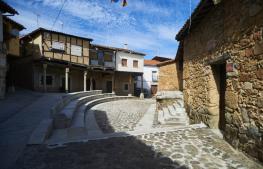
Cuacos de Yuste Historical Site
Back in 1959, the town of Cuacos de Yuste, in the county of La Vera, was declared an ‘Aesthetic Reserve’.
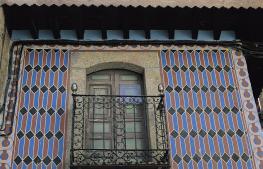
Villanueva de La Vera Historical Site
This is one of the most easterly towns in the county of La Vera, and was declared a Historical Site in 1982.
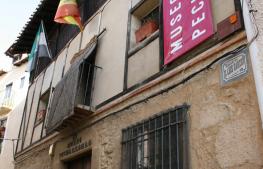
Pasarón de La Vera Historical Site
Pasarón de La Vera is a town located on the western edge of the county of La Vera.

